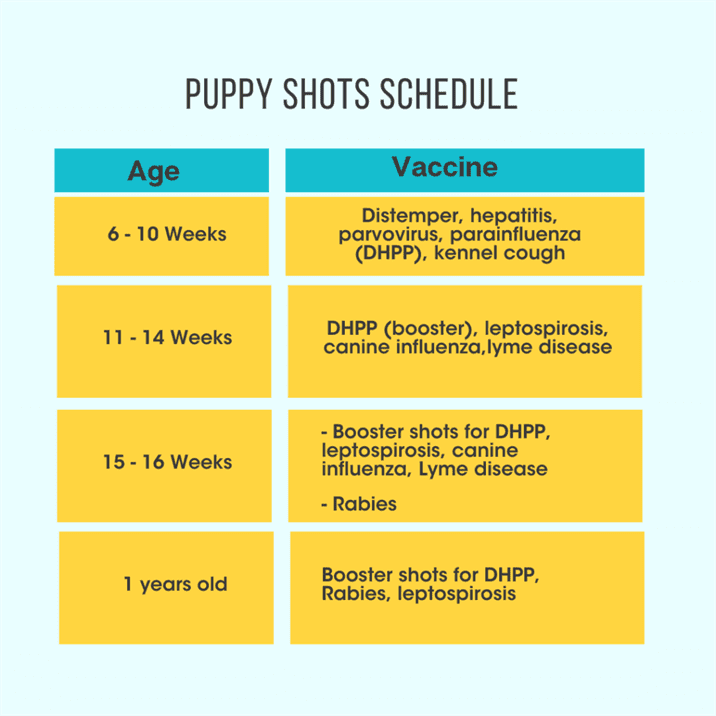All About Dog Vaccination

Vaccination is the best way to protect dogs from certain diseases that are often serious and fatal. The cost of vaccinating your dog is much cheaper compared to having a pet treated for a disease that could have been easily prevented by vaccination.
Responsible pet owners realize the benefits of vaccinating dogs and the need to keep them up-to-date. There is a vaccination schedule that should be followed and as much as possible, pet owners should never skip or postpone these appointments with the veterinarian just because your pet appears healthy and active.
Why dog vaccines are important?
Vaccines help prime the immune system of dogs to mount a defense from any invasion of pathogens or disease-causing organisms. When administered, an antigen present in the vaccine triggers a reaction that causes the immune system to produce antibodies. When the dog is exposed to a disease, the antibodies that are produced by the immune system for that specific disease help the body fight off any pathogens.
Dog Vaccinations — Core and Non-Core Vaccines
There are two types of vaccines for dogs — core and non-core vaccines.
Core vaccines are mandatory because they are vital to all dogs. These vaccines have been identified because of the dogs’ universal risk of exposure, risk of transmission to other species of animals and even humans, and severity of the medical condition.
So which dog vaccines are absolutely necessary?
- Canine parvovirus infection
- Canine distemper
- Canine infectious hepatitis (adenovirus infection)
- Rabies
Non-core vaccines
- Leptospirosis
- Canine Influenza
- Canine Parainfluenza
- Bordetella (Kennel Cough)
- Lyme disease
The decision to administer non-core vaccines to a dog depends on the animal’s risk of exposure to any of these infectious diseases, including their lifestyle. Non-core vaccine protocols are not being customized by vets to suit a dog’s lifestyle.
Puppies Shots Schedule

Puppy Vaccinations
The puppy shots schedule usually starts between 6 and 8 weeks of age. Booster shots are given every 3 weeks until they are about 4 months old when they’re given their final round. During the first few weeks of life, puppies are protected by maternal antibodies that they have received from their mother’s milk (colostrum). The protection that is given by maternal antibodies wanes over time, thus there is a need for puppies to start their first round of vaccinations around the time they are weaned from their mother.
The importance of religiously adhering to your puppy’s vaccination schedule cannot be overemphasized. Puppy vaccinations have been proven to effectively provide adequate protection against specific diseases and illnesses that can otherwise affect puppies that do not receive proper immunizations. You should work closely with your veterinarian for your pet’s vaccination schedule so you will also know which annual dog vaccinations you need to remember.
Annual dog vaccinations
Vaccination for adult dogs generally consists of booster shots for vaccines that have been administered while they were still puppies. The booster shots that are recommended when dogs visit the vet for their first-year wellness check include DHPP, rabies, and leptospirosis. Kennel cough (bordetella) may also be given at this time. The dog’s lifestyle can help determine if there is a need to administer canine influenza and Lyme disease.
Dog vaccinations cost
The average cost for vaccinations in Singapore is about $25 – $50. It will be best to confirm the cost with your veterinary clinic.
What vaccines do dogs need each year?
Your veterinarian will decide which vaccines your dog will require. Depending on your pet’s lifestyle and potential risks, some vaccines need to have boosters every year, every two years, or even three years.
Are there side effects and risks to dog vaccinations?
Like any other medical procedure, there are potential side effects and risks associated with dog vaccinations. However, the benefits far outweigh any potential risks. Adverse reactions to vaccines are rare. Because of the possibility of some side effects, make sure to keep a close eye on your pet after the vaccination. The potential side effects of vaccination in dogs include the following:
- Fever
- Lethargy
- Loss of appetite
- Pain or swelling around the site of injection
- Swelling of the face or paws (hives)
- Vomiting
- Diarrhea
- Difficulty breathing
- Seizures
- Collapse
Just like humans, dogs can run a fever after vaccination. Most of these reactions are mild and resolve on their own. However, severe reactions such as swelling of the face or paws, digestive upsets, lethargy, collapse, seizures, or difficulty breathing should all be brought to the attention of your veterinarian ASAP.
Precautions to Minimize your Dog’s Risks of Complications
Considering that vaccines are not without risks, every pet owner should take precautions to minimize a dog’s risks of developing potential complications. These precautionary measures include the following:
- Vaccines should be administered by veterinarians because they have the education, resources, and experience in choosing the safest and most effective vaccines.
- A dog that is prone to developing side effects may be given an antihistamine and/or steroid by the vet to make the reaction less severe. Always monitor your dog for a least 12 hours or even longer, post-vaccination.
- Ask your veterinarian about the possibility of staggering your dog’s vaccines to lessen the stress on the animal’s immune system.
To Vaccinate Or Not To Vaccinate
Many pet owners are still wary about having their dogs vaccinated because of the potential side effects. However, vaccination, even with the potential for adverse reactions, is still the best way to protect your pet against certain serious diseases. Skipping or postponing your pet’s vaccinations is never a wise decision.
What happens if your dog is not vaccinated?
Pets that are not vaccinated or whose vaccinations are not kept up to date are at much greater risk for acquiring life-threatening or even fatal diseases and transmitting them to other animals or humans. Diseases like rabies, which are now considered quite rare, could once again affect a large number of the dog population.
Are yearly dog vaccinations really necessary?
Not really. There are several factors that should be considered when it comes to the need for yearly dog vaccinations. These include the type of vaccine, the animal’s potential for exposure, and existing laws and regulations. Check with your Vet and they will be able to advise you better!







